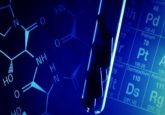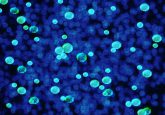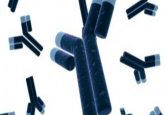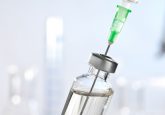Vitamin B3 derivative prevents liver cancer in mice
Liver cancer has the worst prognosis of all cancers, and is also one of the most frequent cancers in the world. Hepatocellular carcinoma (HCC) is the most common and most aggressive form of liver cancer; however, relatively little is known about it and there are relatively few treatment options available.
A new study by researchers from the Spanish National Cancer Research Centre (CNIO; Spain) published in Cancer Cell reports on the first mouse model to faithfully reproduce the steps of human HCC development, from the appearance of the first lesions in the liver to the development of metastasis. The results show that diets rich in nicotinamide riboside, a vitamin B3 derivative, prevent mice from developing HCC in its most initial stage, as well as having a curative effect in mice that have previously developed the disease.
Since human HCC is associated with alterations in hepatocyte survival and the URI oncogene plays a role in this process, the team genetically engineered mice that had high levels of URI in the liver. At 30 weeks, mice with high URI levels developed sporadic liver tumors, as well as metastasis when the induction lasted longer. The researchers explain how deficiency in nicotinamide adenine dinucleotide (NAD+) controls the development of the disease: “An increase in URI reduces cellular NAD+ and as a consequence produces genotoxic stress and DNA damage,” commented Nabil Djouder, the leader of the study. “It is still not totally clear, however, why the deficit in NAD+ causes these lesions,” he added.
DNA damage represents the first step in the sequence of events that activate the carcinogenic process in the liver, even before apoptosis. “We normally say that oncogenes induce DNA damage. Now we may be able to say, more appropriately, that oncogenes induce NAD+ depletion [or deficits in NAD+] which causes DNA damage,” Djouder remarked.
Having discovered that a decrease in NAD+ resulted in the development of liver cancer, the team then tested whether an increase in NAD+ would result in protective effects. They supplemented the diet in the genetically engineered mice with nicotinamide riboside, a vitamin B3 derivative that increases intracellular levels of NAD+, and found that no tumors developed. Furthermore, when they supplemented the diet of mice that had already developed liver cancer with nicotinamide riboside, the tumors reduced in size and eventually disappeared.
“We observed the same results in mice with pancreatic adenocarcinoma with regards to DNA damage, so we could conclude that this treatment is effective on tumors caused by oncogene-induced DNA damage and thus, deficit in NAD+,” commented Krishna Tummala, first author of the study.
To build on their research, the researchers also collated the results of almost 100 human samples. The article reports: “Those from patients with HCC contain URI levels that double those of healthy samples”. The results also show an association between URI levels and prognosis and illness evolution, and highlight the gene as a possible new HCC marker. Furthermore, boosting of NAD+ levels by nicotinamide riboside may provide the basis for new treatment options. However, the researchers emphasize that the efficiency of NAD+ enhancing nutritional supplements to protect healthy cells from chemotoxic stress as a combined therapy in oncology still needs to be demonstrated. Djouder’s team is collaborating with the CNIO Clinical Research Programme to broaden these studies in mice and also evaluate the possibility of carrying out human clinical trials in the future.
Source: Centro Nacional de Investigaciones Oncologicas Carlos III Press Release




